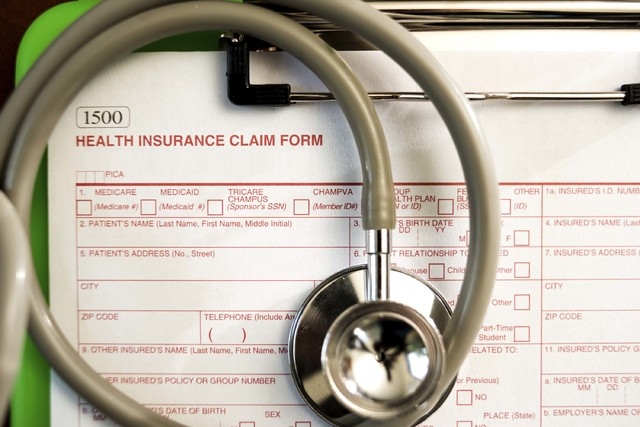Medicaid among many questions on health-care coverage
With the latest open-enrollment session underway, readers have plenty of questions.
We’ll dive right in with an email from “goochipooch,” who writes:
“Because I made a low income last year, I was told to apply for Medicaid. In the application there was nothing about the government putting liens on assets upon death. This application said it in two different places, but it said they ‘may’ — the word ‘may’ — come after your assets upon death. Now that I know, I don’t think I want to be on Medicaid, but I make very little income. In fact, right now I’m unemployed. So what do you suggest? Can I get a low insurance plan?”
You might only recently have learned about asset recovery, goochipooch, but it’s been part of Medicaid rules since the early 1990s. For people on Medicaid, it’s income that matters, not net worth. That means it’s possible to qualify for the program even if you have retirement savings and a mortgage-free home — as long as you earn less than 138 percent of the federal poverty level wage, or $16,104 for a single in 2015.
If you don’t like it, you absolutely can opt out of Medicaid. No one can force you into the program, and you’re entitled to buy the private insurance plan of your choice. But go directly through a carrier or broker if that’s the path you want to take, because if you try to buy through Nevada Health Link or healthcare.gov, your low income will push you straight to the Medicaid application. The online marketplace won’t let you buy a subsidized private plan if you qualify for Medicaid.
Before you opt out of Medicaid completely, you should know the state program has limits on when it can seize your assets. It can’t collect from you if you’re survived by a spouse, a child younger than 21 or a blind or disabled child of any age. Nor can it come after your property if you share your home with a sibling. The state might file a lien against those assets upon your death, but they typically won’t collect until after your spouse, child or sibling dies.
You also can protect what you own by putting it in someone else’s name, although you might have to transfer assets years before you re-enroll in Medicaid. That also would limit your access to your holdings. Whether you’re willing to give up that freedom is up to you.
■ Richard, a single dad of a 14-year-old, wrote to tell us he’s having trouble finding coverage options for his child. Richard has his son enrolled in a private discount program now, but he’s worried he’ll be fined for not buying insurance that meets the federal law’s strict coverage mandates. He wants to know what he should do.
Richard, based on the income and household situation you outlined in your email, your son is eligible for Nevada Checkup, a state-run insurance program for uninsured children of low-income families.
Nevada Checkup meets the coverage standards of the federal law. Go to healthcare.gov, load in your information, decline coverage, put in your child’s details and then accept coverage. If you run into trouble with your application, let us know.
■ Shannon has a wide-ranging list of questions on everything from tax returns to citizenship. We enlisted broker Brent Leavitt of Nevada Benefits to help us sort it all out.
For starters, she and her husband, who now live in Nevada, skipped buying on their state’s exchange in the first enrollment session, instead purchasing directly through an insurer because they believed they made too much to get the federal premium subsidy. But their 2014 income ended up being considerably less than expected. Shannon wants to know if they can claim the tax credit on their upcoming tax return, even though they didn’t buy through a state exchange.
You’re out of luck on this one, Shannon. You did indeed need to buy through the exchange last fall to capture the tax credit. Also, if your income fell low enough — that would have been lower than $21,707 for both you and your husband, based on federal guidelines — then you wouldn’t qualify for a subsidy anyway because you would have been Medicaid-eligible, Leavitt said.
Shannon and her husband also are looking at converting their regular IRA to a Roth IRA before year’s end. Shannon asked if that conversion would be included in the income used to determine subsidy eligibility.
This one is simple: It counts as income if you declare it as earnings and pay taxes on it.
Next up, Shannon wanted to know about citizenship requirements. Her husband is a U.S. citizen, but she’s a legal U.S. resident who has had a green card for nearly two decades. Is she eligible as a noncitizen to buy a subsidized plan?
Most definitely. Noncitizens who are here lawfully are eligible for tax credits because they pay taxes.
And then there’s this question, which we’ve seen time and again: Do you only get a tax credit if you buy the benchmark silver plan? Or can you buy a higher-level platinum policy and receive a subsidy?
If you buy through the exchange and you make 138 percent to 400 percent of the federal poverty wage, you should get a subsidy on any plan you purchase.
But here’s where we think the confusion comes in: You must buy a silver plan to qualify for cost-sharing reductions, which can slash your deductible from thousands to hundreds of dollars, and your office-visit copays to $5 or $10.
Cost-sharing reductions aren’t available on bronze, gold or platinum plans. If you make less than 300 percent of the federal poverty level, you’re probably eligible for cost-sharing reduction and should go for the silver, Leavitt said.
Finally, can a self-employed person getting a subsidy claim the self-employed health-insurance deduction on her tax return?
Leavitt said taking the deduction should be a go, but double-check that with your accountant just to be sure, Shannon.




























